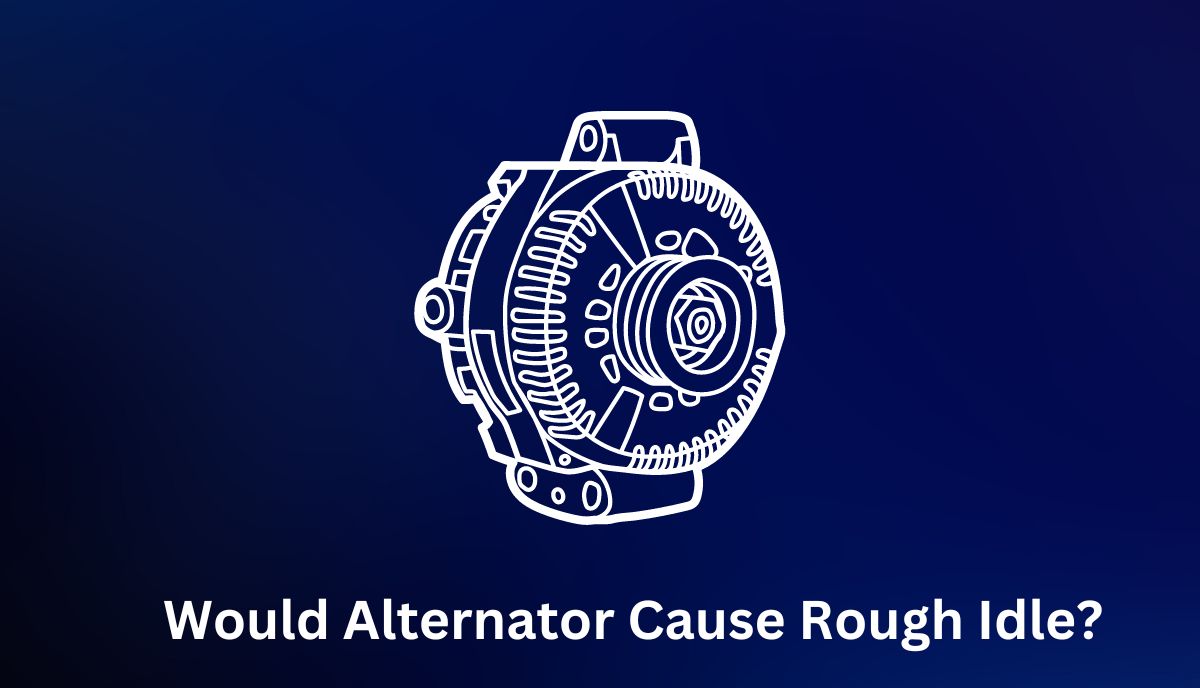Yes, the alternator can cause rough idling in a vehicle. While the alternator’s primary function is not to start the engine, it becomes the main power source once the engine is running. A bad alternator can lead to rough idling due to various factors, including low voltage affecting spark plug performance, a malfunctioning alternator diode causing misfires, and poor grounding issues. Additionally, the alternator’s impact on the fuel pump and camshaft position sensor can further contribute to rough idling. It’s essential to consider alternator health alongside other potential causes of rough idling, such as bad spark plugs, clogged fuel injectors, dirty air filters, defective oxygen sensors, clogged fuel filters, and faulty fuel pumps.
The following alternator-related variables may lead to rough idling:
1). The Alternator’s Voltage is Too Low
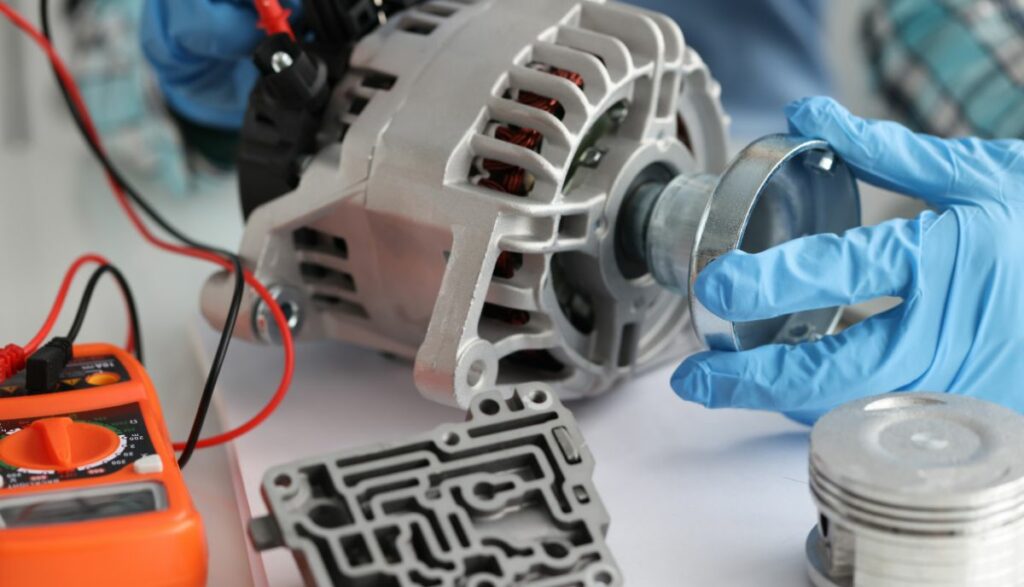
Spark plugs use the battery to generate the spark that ignites the air/fuel mixture. However, once the engine gets going, the alternator takes over. A bad alternator that can’t generate sufficient voltage will cause a misfire.
The severity of the rough idling depends on the number of spark plugs affected by the alternator’s voltage deficiency.
2). The Alternator Diode Is Bad
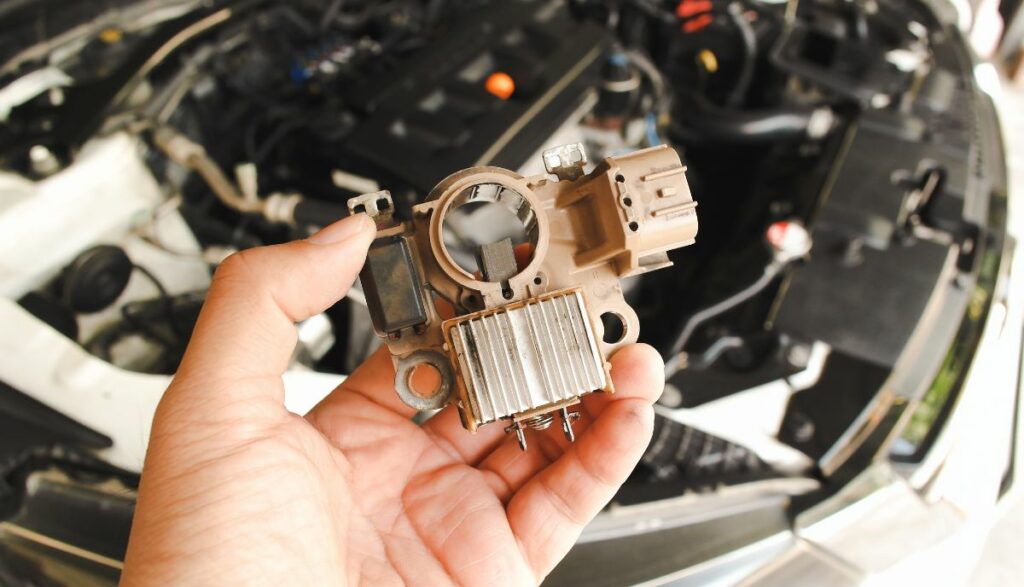
Alternators use a rectifier to turn alternating current to direct current, which the vehicle’s accessories need. A diode makes sure the current flows in a specific direction. A broken diode produces the opposite effect.
It allows the current to move in the wrong direction. In some cases, this enables the alternator to drain the battery. However, dictoresno on the North American Subaru Impreza Owners Club forum has highlighted a consequence many laypeople ignore.
A bad diode can confuse the cam sensor by sending a noisy signal through the harness. The cam sensor will interpret that signal as a fault. This is concerning because the sensor tells the engine when to fire the plugs.
In other words, a fault in the camshaft position sensor originating from a bad diode can lead to incorrect firing.
3). The Alternator Is Not Grounded
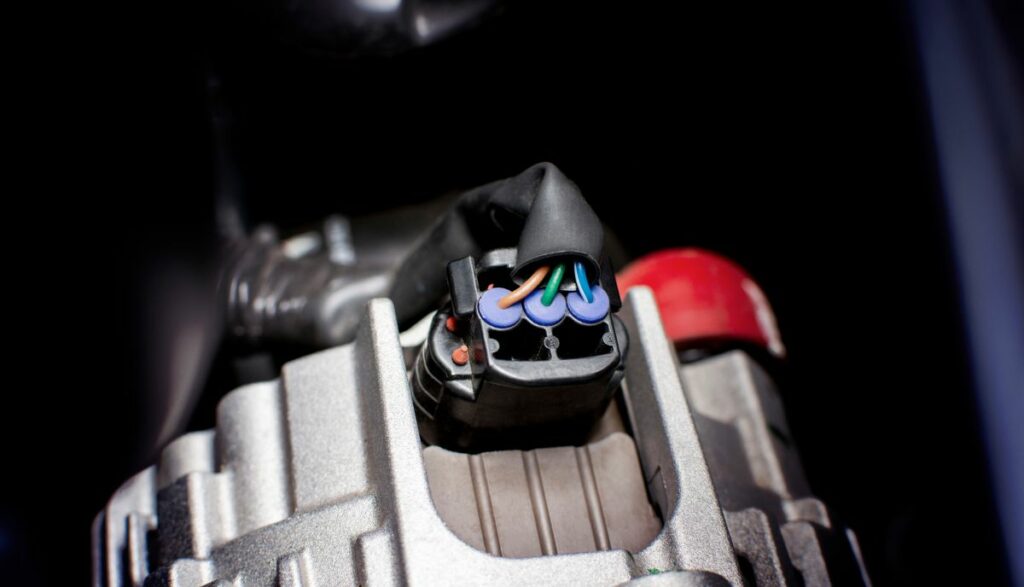
Alternators have a grounding cable. Cash Cars Buyer uses the term ‘Ground Strap’ because many manufacturers braid small steel cables together to create the equivalent of a large strap that runs between the engine block and the battery’s negative terminal.
During a power surge, the strap draws the excess current away from the alternator and other accessories, protecting them. Unfortunately, the ground cable wears out over time. Symptoms of a poorly grounded alternator include:
- Flickering headlights.
- The battery doesn’t charge.
- The car refuses to start.
- Accessories like the radio turn off while you’re driving.
Donald Needham, from this Quora discussion, has noted that manufacturers bolt most alternators to the engine. As such, they are sufficiently grounded. But if your alternator is rubber-mounted and relies on a braided ground wire, intermittent grounding issues can lead to rough idling.
However, don’t forget that rough idling has numerous causes. Don’t blame the alternator without considering other potential culprits, such as:
- Bad spark plugs – Dirty or worn-out plugs can’t fire as required. They cause misfires.
- Clogged Fuel Injectors – Engines with clogged fuel injectors misfire because the fuel injector cannot transfer sufficient fuel to enable efficient combustion.
- Dirty Air Filter – A dirty air filter disrupts the engine’s airflow.
- Defective Oxygen Sensors – The oxygen sensors work with the ECU to maintain correct oxygen levels in the engine. A faulty oxygen sensor will send inaccurate information to the ECU. Rough idling will occur because the engine is running too rich or too lean.
- Clogged Fuel Filter – Engines with clogged filters have an unbalanced air/fuel mixture.
- Faulty Fuel Pump – A damaged fuel pump cannot send sufficient fuel to the injectors.
Along with the carburetor, IAC valve, TPS, and EGR valve, you have a long list of components to inspect and troubleshoot before you can blame the alternator for a car’s rough idling.
What Role Does The Alternator Play In The Engine’s Idle Quality?
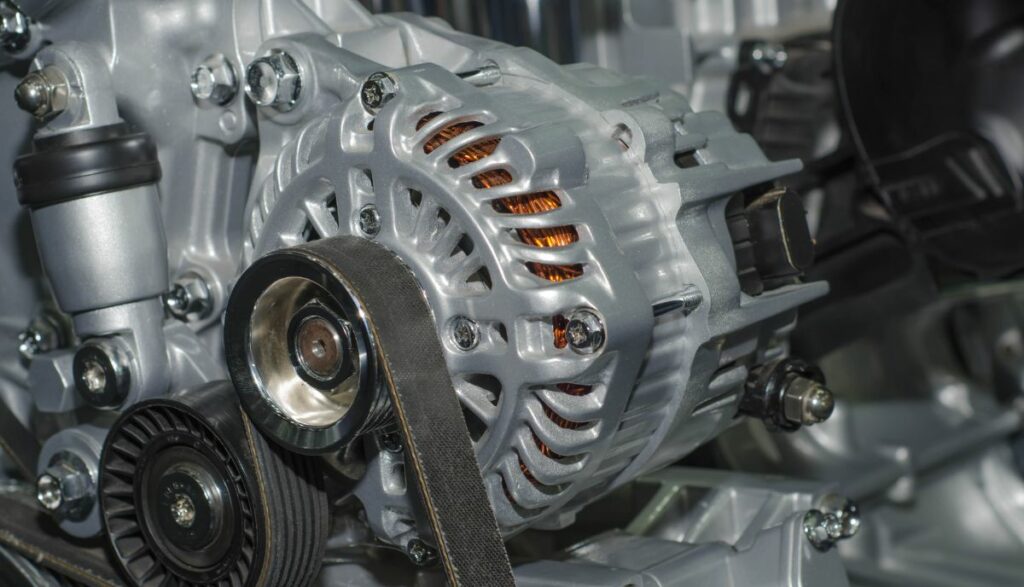
The alternator plays a role in an engine’s idle quality because it influences the engine’s performance. Consider the following:
1). Fuel Pump
Many consumers blame poor pressure and flow on a defective fuel pump. They don’t realize that low voltage and bad ground can make the fuel pump underperform.
Low voltage from a failing alternator will prevent the pump from attaining the proper pressure. This can lead to rough idling.
2). Camshaft Position Sensor
The computer uses the information from the camshaft position sensor to control the firing of the spark plugs. A bad diode in the alternator will send a ripple that a computer confuses for a signal from the sensor, creating misfires and rough idling.
3). Spark Plug
A spark plug in a car with a bad alternator will produce a weak spark. Expect sluggish acceleration, poor fuel economy, engine knocking, and rough idling.
Are There Symptoms Of A Failing Alternator That Include Rough Idling?
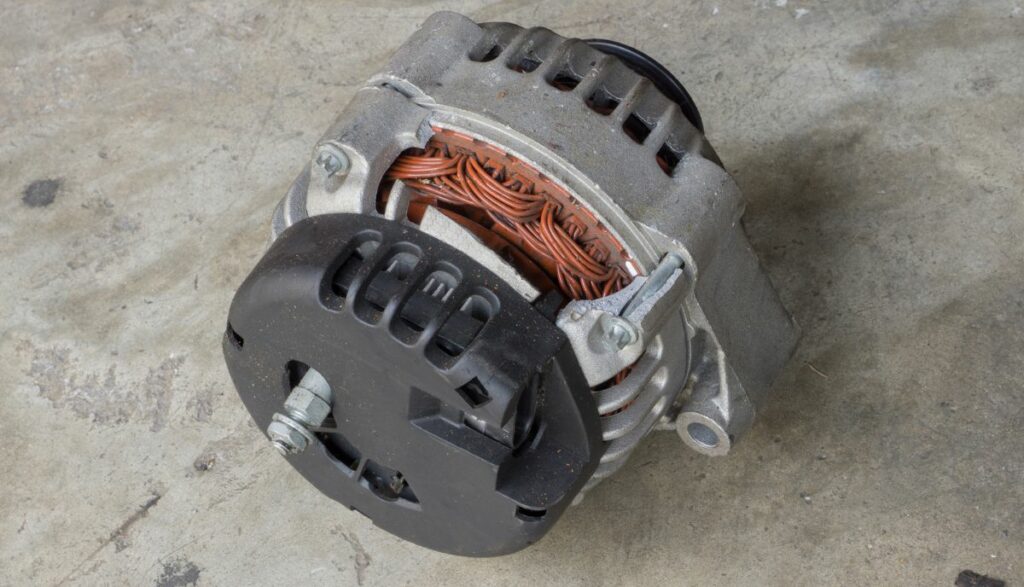
Yes, rough idling is part of the symptoms you will encounter when the alternator fails, along with misfires. You should also keep an eye out for the following:
1). The Battery Will Die
Your vehicle’s battery doesn’t drain after a few driving sessions because the alternator keeps charging it when you start the engine. A weak or defective alternator cannot charge the battery.
And once the battery discharges completely, the vehicle won’t start. Remember, the car uses the battery to turn the engine over. Without the battery, your vehicle isn’t going anywhere.
2). The Electrical Accessories Won’t Work
Are the lights flickering? Are the speakers muted? Is the radio dead? The alternator powers the accessories in a vehicle with a running engine. Those accessories will malfunction or refuse to turn on when the alternator fails. If the alternator dies completely, the accessories will pull the current from the battery until it’s empty.
3). You Will Hear Strange Sounds From Under The Hood
Failing alternators can generate unusual sounds because of loose belts and broken bearings. Listen for squeaking and humming. These sounds will get worse as the severity of the damage grows.
4). You May Smell Burning Rubber
You may notice the smell of burnt rubber because the alternator is overheating. Expect similar results from undersized alternator cables that overheat and melt. Usually, identifying the source of burning rubber is challenging because vehicles have numerous wires.
However, if you’ve noticed one or more of the symptoms above, you have every reason to concentrate your search in the vicinity of the alternator and the battery.
How Does Alternator Performance Impact The Smoothness Of Engine Idle?
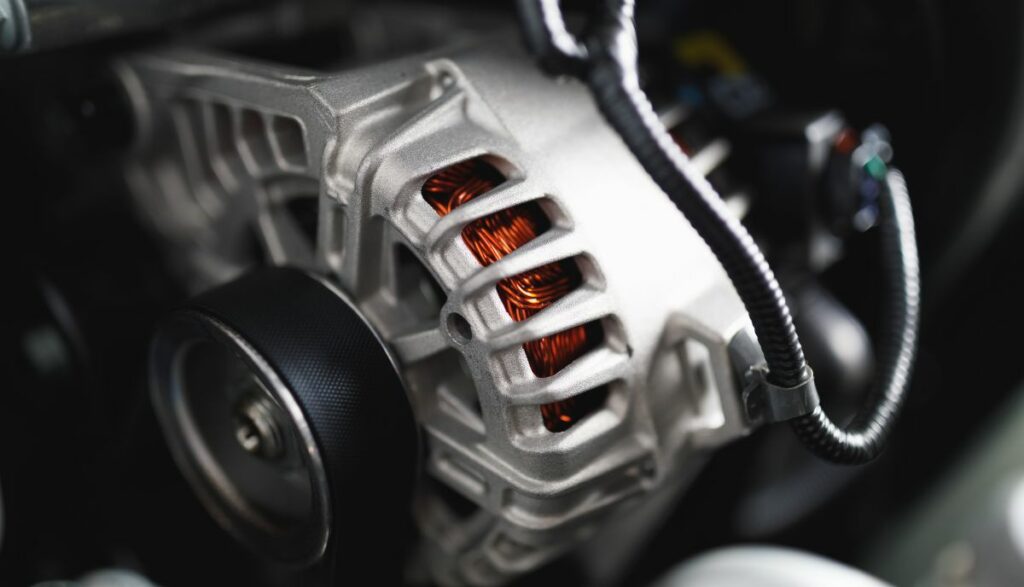
The experts at Azuga are convinced that a bad alternator will cause fast idling. That concern is justified, particularly in modern cars that use numerous electrical components to enhance the engine’s performance.
Have you stopped to consider the functions of an electronic control unit in your vehicle? It manages everything from the quantity of fuel flowing to the cylinders to the compression and combustion of the air/fuel mixture.
It will even control the rate and strength of the spark the spark plugs use to initiate the combustion process. What happens when a faulty alternator wreaks the ECU? What about the sensors that rely on the alternator’s voltage to remain in operation?
What if they stop working because of insufficient voltage? Expect misfires, poor fuel economy, strange sounds, deteriorating performance from the engine, and rough idling.

